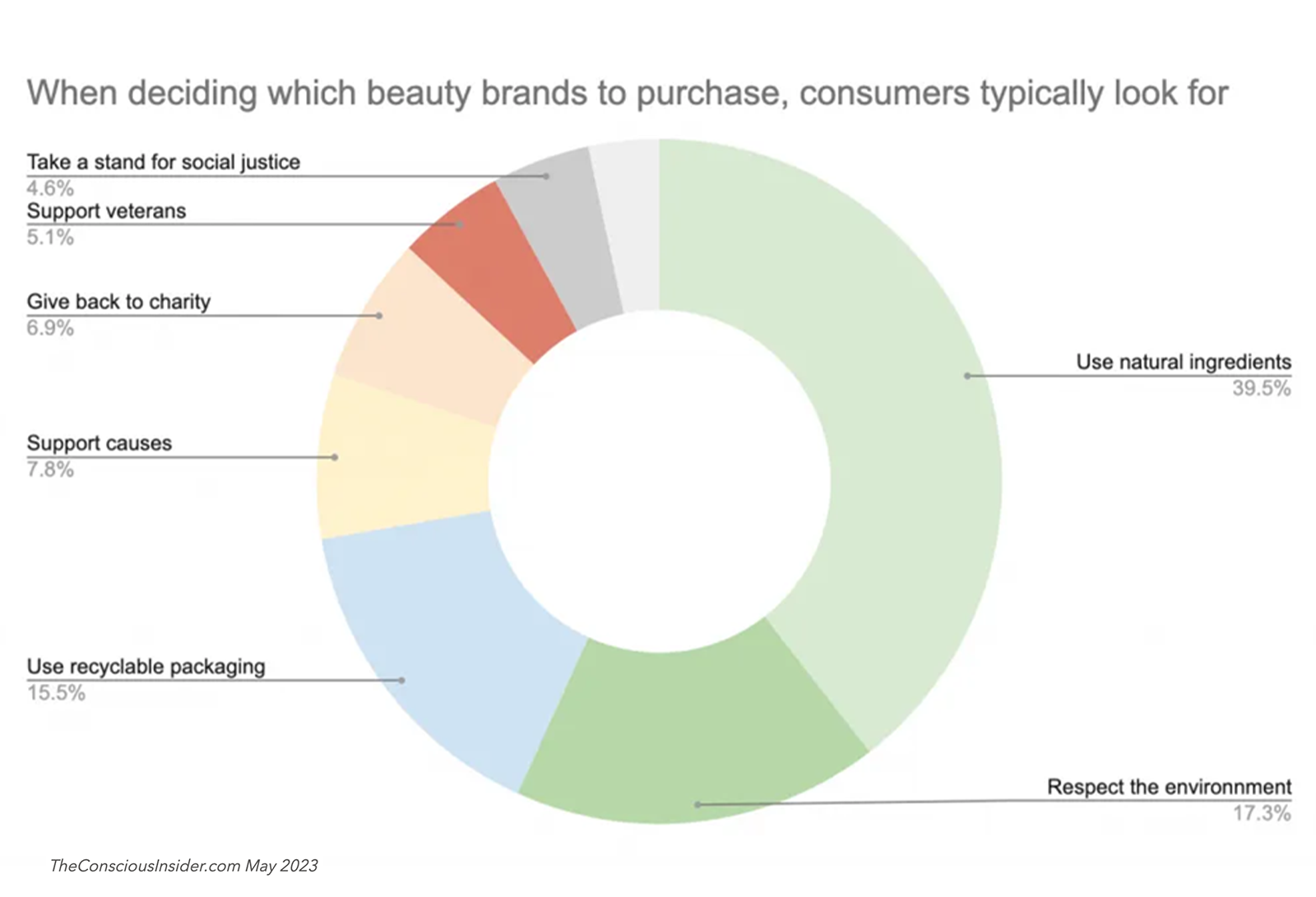The future of beauty is conscious, ethical, sustainable, and rooted in transparency. This is the conclusion from the recent online panel discussion on currnt, a knowledge creation platform. The panel, “Envisioning the Future of Conscious Beauty,” consisting of 25 industry experts, delved into the state of conscious beauty, its positive impact, and the challenges. Here are some of the key insights:
Conscious Beauty Should Be Mindful
Andrea Endres, a holistic skincare online event facilitator, envisions a future where the beauty industry promotes mindful consumption, focuses on values beyond superficial beauty, and improves mental health through awareness of purchase impact. Meanwhile, Daniela Lindh, Manager at Salon Republic, sees a world where conscious beauty options should be the only choice. However, she acknowledges the complexities of making fully conscious decisions, indicating that consumers should prioritize what's important to them. As the industry stands today, it feels much more consumption driven and not very mindful at all. We hope this will change as consumers become more educated and make more intentional choices.
But It’s Complicated
The impact of conscious beauty is multidimensional. Jaime Schrabeck, a beauty industry advocate, emphasizes the role of compliance and safety in evaluating services, products, and business practices. She calls for informed consumers who understand the potential risks and expected outcomes of their beauty routines. Perry Nixdorf, CEO at Ability Fix and Paradise Salon Spa Wellness, ties the ideal solution to a balance between corporate success, consumer benefit, and environmental impact. He suggests that government regulations may be required to push the industry towards sustainable practices.
The Safer Beauty Bill Package was reintroduced in the U.S. Congress in May 2023 (originally introduced in 2021). This package “addresses gaping holes in cosmetic safety by banning the worst chemicals; requiring fragrance disclosure; protecting women of color and salon workers; and creating supply chain transparency.” There would also be legal definitions of “natural” and “naturally derived.” Until then, it’s complicated.
A Win, Win
Fortunately, if we get conscious beauty right, there are many winners. The beneficiaries of an ideal conscious beauty landscape are consumers, the environment, and the industry. Pranay Sethi, Category Head at a leading beauty firm, highlights the benefits of offering effective products with ethically sourced ingredients, sustainable packaging, and supporting fair trade practices. Endres adds that implementing conscious beauty in line with the UN’s 17 sustainable development goals would benefit various aspects of life and the environment. Nixdorf sees benefits for the industry—especially smaller brands—if larger brands collaborate. The smaller brands may be the ones championing the change, but it’s the bigger brands that will really make a difference towards mindful consumption once they fully get on board with conscious beauty. In the meantime, many small brands are leading the way, like those that are part of the Conscious Beauty Collective, a retail experience with 30+ indie beauty and wellness brands in Palm Springs, CA. Complete with experiential marketing, they are educating and informing consumers about the difference between good-for-you ingredients and the toxic ingredients that are still in the majority of beauty products on the market today. Customers can also exchange “dirty” products for “clean” versions at the store.
Besides having formulas that are “EU clean,” brands are welcomed into the Collective for:
The Conscious Beauty Collective has found strength in numbers with small brands joining forces to change the industry.
Challenging yet Promising
The journey towards conscious beauty is not without its challenges. Laura McCann, founder and CEO at ADORAtherapy, points out that conscious beauty lacks a clear definition and is constantly evolving. She calls for laws to address standards in beauty manufacturing. She acknowledges that while consumers prioritize price, convenience, and popularity, conscious beauty needs to identify unique features and rally brands for support. With all the confusing language, ingredients, and studies, it’s up to brands, experts, and consumers to start to make sense of the beauty industry and begin holding it accountable when products are clearly toxic.
According to theconsciousinsider.com, 33% of brands are labeled as “clean” in the US, but are they?
Cindy Barberes, founder and CEO at H. Honeycup, agrees that there are challenges to a consumer’s understanding and a brand’s execution of clean and conscious beauty. Ulta makes an honest attempt to define its conscious beauty brands, but without a universal definition, it can add to the noise.

The panelists also expressed concern over deceptive practices such as greenwashing, virtue signaling, and performative philanthropy, which have tainted the industry. They called for transparency, ethical practices, and sustainability throughout the production and distribution chain. It’s tempting for brands to want to jump on the conscious beauty bandwagon, but at the heart of the movement, it’s about intention—products and brands need to be thoughtfully crafted and articulated.
In conclusion, creating an ideal conscious beauty landscape is not only about making ethical and sustainable choices but also about promoting transparency, fairness, and collaboration. The beauty industry has the potential to create a positive impact that benefits consumers, the environment, and future generations. As Laura McCann put it, “Democratizing access to information through technology can help brands express their values more easily.” The future of conscious beauty is promising, and it's up to us to make it a reality.